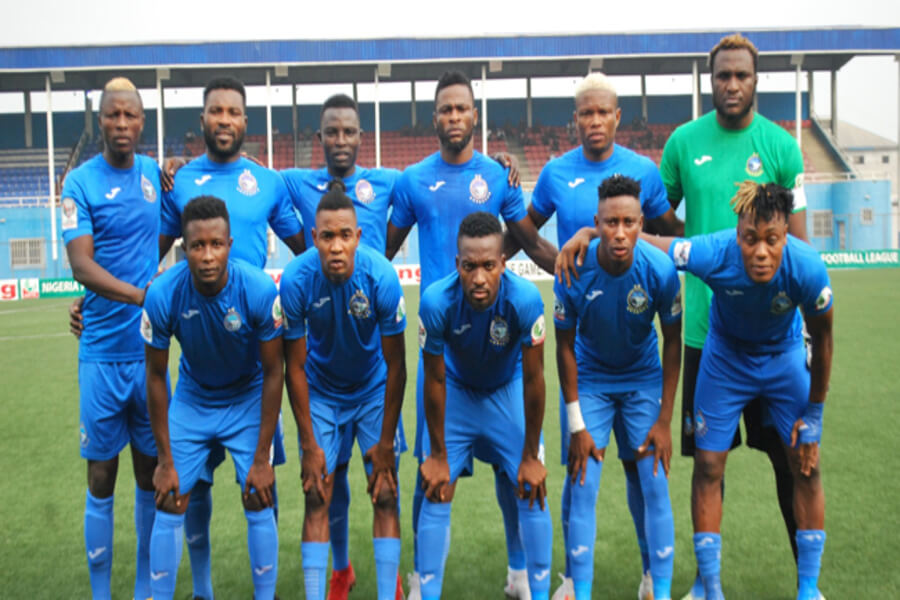Who Brought Soccer In Nigeria? The Evolution Behind Football Within Ni…
페이지 정보
작성자 Stephany 작성일24-12-10 17:49관련링크
본문
A tremendous 67% of Nigerians watch Football, which demonstrates how much the sport influences Nigerian culture. Football's journey in Nigeria began over 100 years back, shaping the nation's sporting landscape.
Football in Nigeria dates back to the early 1900s. British colonisers brought the sport to the nation in 1904. The very first documented football match occurred that exact same year, beginning Nigeria's rich footballing history of football in nigeria.
By 1950, Football had become Nigeria's national game. Its quick increase led to many clubs and associations forming in the early 1900s. This development improved Nigerian pride and assisted influence political liberty movements.
Nigeria's football legacy now reaches beyond its borders. For many years, the nation has actually produced first-rate skill, and Nigerian youth teams have actually won the FIFA U-17 World Cup five times.
The Super Eagles, Nigeria's national team, are a force in African Football. They often get approved for substantial competitions and make their mark internationally.
The British Colonial Introduction of Football to Nigeria
Football showed up in Nigeria during the British colonial era. It quickly captured the hearts of residents, marking the start of a rich footballing tradition in the country.
The First Football Match in 1904
The first football match in Nigeria happened in June 1904. It was in between Hope Waddell Training Institution and the team of HMS Thistle. The Nigerian team won 3-2, stimulating a nationwide enthusiasm for the sport.
Hope Waddell Training Institution vs HMS Thistle
I hope the Waddell Training Institution in Calabar played a key function in early Nigerian Football. Their victory over HMS Thistle's team revealed the skill of Nigerian players. This match set the stage for Football's development in the nation.
Early Football Club Formation (1906-1932)
After the 1904 match, Football's popularity skyrocketed. From 1906 onwards, early football clubs started forming, and this grassroots motion spread out the sport throughout Nigeria.
The Lagos District Amateur Football Association (LDAFA) was developed in 1932. The LDAFA marked the start of organised Football in Nigeria and paved the way for the sport's future success nationally and globally.
Who Introduced Football in Nigeria
Football got here in Nigeria in the early 20th century. British colonisers brought this precious sport to the West African country. It quickly ended up being a passion that shaped Nigeria's sporting landscape for generations.
Function of British Colonisers
British colonisers played an important function in Nigeria's football history. The first tape-recorded match took place in June 1904. Hope Waddell Training Institution faced the crew of HMS Thistle.
The Nigerian group won 3-2. This victory marked the beginning of an abundant football legacy in the country.
Formation of First Football Association
The Lagos District Amateur Football Association (LDAFA) was established in 1932. It laid the groundwork for organised Football in Nigeria, which paved the way for the Nigerian Football Association (NFA).
The NFA was founded in 1945. It became the national governing body for Football and manage its development throughout the nation.
Development of Local Football Culture
Football rapidly took root in Nigeria, becoming the national sport by 1946. Its availability and simple rules assisted it spread rapidly. Local neighborhoods welcomed the game, forming their groups.
This grassroots enthusiasm laid the structure for Nigeria's future success. The country's passion for Football grew, causing achievements on the international phase.
"Football became more than just a sport; it evolved into an essential Nigerian culture and identity aspect."
The British colonisers' intro of Football stimulated a sporting transformation in Nigeria. Football's journey mirrored the country's development of football in nigeria from the first match in 1904 to the development of the NFA in 1945.
Today, Football stays an integral part of Nigerian life. It's a testament to the sport's enduring appeal and cultural significance in the country.

The Rise of Nigerian Football Administration
The Nigerian Football Association (NFA) was developed in 1945. It played a crucial role in shaping Nigerian Football. In 1949, the NFA formed Nigeria's first national football group.
In 1959, Nigeria signed up with the Confederation of African Football (CAF), which allowed it to participate in continental competitions. Nigeria also became a FIFA member in 1960, signing up with the worldwide football community.
The NFA, later renamed the Nigeria Football Federation (NFF), organised national sport competitions. They created the Nigerian Premier League and the Federation Cup, which ended up being the highlights of domestic Football.

Football associations throughout Nigeria flourished under the NFF's guidance. They nurtured skill and promoted grassroots development. Professional Football started in 1990 with sixteen club sides taking part.

"Our mission is to revive football development at the nationwide level and repackage the league in line with worldwide best practices," mentions the Nigeria National League.
The Premier League was carried out in 2003. This relocation intended to enhance domestic football standards and attract more viewers and sponsors to national competitions.
Nnamdi Azikiwe's Impact on Nigerian Football
Nnamdi Azikiwe, born in 1904 in Zungeru, Northern Nigeria, left an indelible mark on Nigerian Football. His influence formed the country's sporting landscape. Azikiwe's enthusiasm for sports originated from his varied experiences and education abroad.

Establishment of Zik's Athletic Club
In 1938, Azikiwe established Zik's Athletic Club (ZAC) in Lagos. This club became a symbol of African self-determination. ZAC played an essential function in establishing Nigerian football history.
It provided a platform for young athletes to display their skills. The club promoted local talent and promoted a sense of national pride.
The West African Pilot's Influence
Azikiwe's newspaper, the West African Pilot, played a significant function in popularising Football throughout Nigeria. It thoroughly covered regional matches, group news, and player profiles. This limelights assisted grow the sport's fan base.
Football as a Tool for Independence
Azikiwe saw Football's possible as a unifying force in the independence motion. He used the sport to break down ethnic barriers, and Football became a symbol of Nigerian unity through his advocacy.
Azikiwe's efforts connected Football to nationalism, contributing substantially to the sport's growth and forming its function in modern-day Nigeria.
"Football is not just a video game; it's an effective national unity and identity tool."
Nigeria's Journey to International Football Recognition
Nigeria's football journey took a substantial leap forward in 1960. The country got FIFA subscription, marking its entry into worldwide Football. This milestone accompanied Nigeria's self-reliance from British guideline.
FIFA Membership and First International Match
Nigeria's very first football association international match happened on 8 October 1949. They dealt with Sierra Leone and won 2-0 in a historical encounter. This triumph stimulated interest for Football throughout the country.
Early Continental Competitions
Nigeria debuted in the Africa Cup of Nations in 1963. The competition, hosted by Ghana, saw Nigeria facing hard opponents. These experiences proved important for the group's growth.

Nigeria's determination settled in 1973. They clinched gold at the All-Africa Games, marking their first major continental success. 1976, they secured bronze at the Africa Cup of Nations in Ethiopia.
Nigeria's football expertise grew in the 1970s. In 1978, they duplicated their bronze medal feat in Ghana. 1980, Nigeria hosted and won its first Africa Cup of Nations title.
Development of Nigerian Football Governance
Nigerian football governance has seen considerable changes and challenges because 1945. The Nigeria Football Federation has actually formed the country's football landscape, and its journey has actually been intricate and transformative.

From NFA to NFF
The Nigeria Football Association started in 1945. It became the Nigeria Football Federation in 2008. This change intended to modernise the organisation's structure.
In 2019, an expense was passed to acknowledge the NFF officially. It's still awaiting governmental approval.
Advancement of League Systems
The NFF manages three primary leagues: the nigerian youths Premier League, Amateur League, and Women's League. These competitions form the backbone of Nigerian Football.
They promote talent and promote the sport nationwide. Nevertheless, difficulties like delayed seasons and place conflicts continue.
National Team Formation
Nigeria's Super Eagles national team was formed in 1949. They've received 6 FIFA World Cups and won 3 Africa Cup of Nations titles.
These accomplishments have actually increased Nigeria's standing in international Football. The Super Eagles' success has put Nigeria on the worldwide football map.
Nevertheless, Nigerian Football deals with continuous difficulties. A research study revealed high levels of corruption in football governance. This impacts contract awards and player selection.
These issues highlight the requirement for reform. For the sport to thrive, transparency in the Nigerian football administration must enhance.
Conclusion
Nigerian Football's legacy showcases the country's strength and enthusiasm. It started in 1904 with Hope Waddell Training Institute dealing with HMS Thistle. Since then, Nigeria has actually become a powerhouse in African Football.
The sport's development shows the country's journey from colonial guideline to independence. It has actually promoted a sense of national pride of national identity and unity. Nigeria's worldwide football recognition is indisputable.
The Super Eagles' gold medal at the 1996 Atlanta Olympics is an emphasize. Their remarkable FIFA World Cup efficiencies also stand out. Nigeria has gotten approved for six World Cups.
In 1994, Nigeria achieved its greatest FIFA ranking of 5th, solidifying its place on the international stage. Nigerian Football continues to progress with appealing potential customers.
Talents like Ahmed Musa and Kelechi Iheanacho shine in leading European leagues. This bodes well for the sport's advancement. The Nigeria Football Federation guides the game's development.
Football's sustaining tradition in Nigeria inspires upcoming generations and assures an amazing future for the sport. The lovely game stays a source of nationwide pride and unity.

FAQ
Who presented football to Nigeria?
British colonisers brought Football to Nigeria in the early 1900s. The sport quickly became popular and woven into Nigerian culture.
When was the first football match played in Nigeria?
The very first recorded football match in Nigeria happened in June 1904. Hope Waddell Training Institution bet the HMS Thistle crew. The Nigerian team won 3-2.
How did Football become Nigeria's national sport?
Football's basic guidelines and accessibility made it popular in Nigeria. By 1950, it was the nationwide video game, motivating pride and freedom motions.
What function did Nnamdi Azikiwe play in Nigerian Football?
Nnamdi Azikiwe, Nigeria's very first President, was vital in developing football history. He began Zik's Athletic Club in Lagos in 1938, and his paper, the West African Pilot, connected Football to the independence motion.
When did Nigeria join FIFA?
Nigeria ended up being a FIFA member in 1960, the same year it got independence. This marked Nigeria's main entry into international football governance.
What is the Nigerian Football Federation?
The Nigerian Football Federation (NFF) governs Football in Nigeria. It evolved from the Nigerian Football Association, developed in 1945. The NFF organises national leagues and competitions, including the Premier League and Federation Cup.
What significant successes has Nigerian Football accomplished?
Nigeria has actually played in 6 FIFA World Cups. The Super Eagles national team has actually won three African Cup of Nations. They've also won gold in the 2nd All-Africa games.

 > 고객센터 > 부고함
> 고객센터 > 부고함
 장례협동조합국화원
장례협동조합국화원